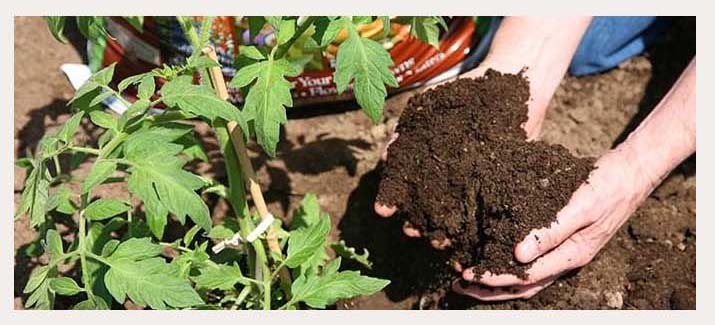Compost is a nutrient-dense organic substance formed by the breakdown of organic waste. It has many uses and benefits for the environment and various applications. Here are some popular compost applications:

Erosion Control: Composting in erodible locations helps to minimize soil erosion by enhancing soil structure and stability. Compost’s organic content bonds soil particles together, lowering the chance of runoff.
Water Conservation: Compost improves soil water retention, lowering the need for regular irrigation. This is especially useful in dry or drought-prone areas.
Landscaping: Compost can be utilized in landscaping tasks including establishing new lawns and gardens, as well as planting trees and bushes. It offers plants with a nutrient-rich substrate on which to grow.
Compost Tea: Compost tea, a liquid fertilizer, can be made from compost. Compost tea is made by steeping compost in water and then watering plants with the resultant liquid. It delivers a diluted, nutrient-rich solution that plants can easily absorb.
Bioremediation: In bioremediation efforts, compost has been utilized to help break down and neutralize pollutants in soil. Compost microorganisms can aid in the breakdown of some contaminants.
Waste Reduction: Composting is an efficient method of dealing with organic waste. Composting kitchen scraps, yard waste, and other organic waste reduces waste in landfills and promotes a more sustainable waste management system.
Carbon Sequestration: Composting in agriculture and land management activities can help with carbon sequestration. This entails absorbing and storing atmospheric carbon dioxide in the soil, which aids in climate change mitigation.

Soil Amendment:Composting enhances soil structure, texture, and fertility. It improves the water retention capacity of sandy soils and the drainage capacity of clayey soils. Composting soil produces a balanced combination of necessary nutrients for plants. Plant Growth: Compost promotes healthy plant growth by providing critical nutrients such as nitrogen, phosphorus, and potassium to plants. It also releases helpful bacteria into the soil, which helps plants absorb nutrients. Mulching: Compost can be used to cover the soil surrounding plants as a mulch. Mulching aids in the retention of soil moisture, the suppression of weed growth, and the regulation of soil temperature. It also aids in erosion control.
Therefore, compost is a diverse and important resource essential for sustainable agriculture, landscaping, trash management, and environmental conservation.
Post time: Dec-08-2023




